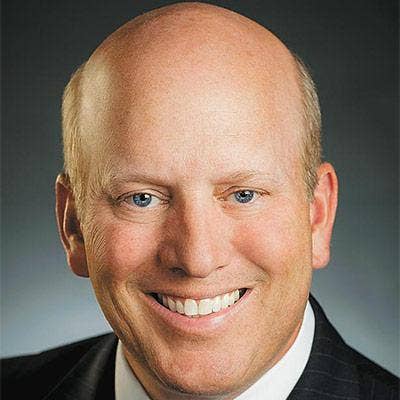Pomeroy CEO Q&A: Here's Why Private Equity Has Its Eye On The Channel

Private Equity Money Flooding Into Channel
Private equity companies are investing in the channel. One of the most notable deals within the past three months included the acquisition of Hebron, Ky.-based managed service provider Pomeroy -- No. 44 on CRN's Solution Provider 500 list -- by Clearlake Capital.
Clearlake, which bought retail solution provider Tolt Solutions, Taylors, S.C., in 2013, is bringing the two companies together under the Pomeroy umbrella, the three companies said in late October. Pomeroy CEO Chris Froman, who will now oversee both Pomeroy and Tolt under what will be called the Pomeroy Group, said the merger of two companies with little client overlap will ’create a more formidable competitor,’ one with more than 4,000 employees and about $1 billion in annual business.
After the news, Froman talked with CRN about the deal and the role of private equity in the channel.

This is an immense deal that can really make your business soar. How big a competitive advantage do you gain with this combination?
We like to target companies that [have] about 2,500 to 25,000 seats. And we believe that our differentiation is around client intimacy, primarily. We are large enough to scale but we're small enough to be flexible. … Everything we do needs to lead to a managed service, so we're all about recurring revenue streams and managed services and long-term relationships.
Tolt has a very similar philosophy as it relates to managed services. They have a very high percentage of recurring revenue, and their primary focus is around the retail industry. And they're very strong in professional and managed services in retail, especially around distributed store and branch locations, where they do a lot of point-of-sale [work].

How important is scale in combining with Tolt?
It's critical. ... These are two independent companies that are going to be set up underneath the Pomeroy Group holdings. In terms of the plan, we're looking for back-office efficiencies and systems integration and things like that – the natural things between the two entities. But we're going to continue to operate business as usual in terms of our customer relationships. And over time, we'll look for ways that we can enhance those relationships by cross-selling and upselling each other's services.
Customers have come back to us and said, 'This seems like a perfect fit and we're interested in having more conversation.'

What level do you feel you need to get to in terms of sales and annual revenue in order to be competitive today?
We think we're competitive today. Part of the plan will be to optimize each other's current offerings, but we're going to look for growth opportunities through additional acquisitions. No question about that. Both of these are platform opportunities within the holding company.

What is your vision for the combined company?
My vision is [to] continue business as usual in terms of delighting our clients, look for opportunities to increase the size of the business and the profitability of the business, and to make this a winning combination for all of our constituents -- and that would be our associates, our partners and, very importantly, our clients.

What you can take from Tolt and use within Pomeroy?
They have great client relationships, they have very good capabilities around distributed services. We both have systems that I think we're going to get mutual advantage out of.
Like what?
Our ERP is Oracle; we'll integrate the two businesses on our platform. We have a really solid ITSM suite and some other tools and technologies in our remote monitoring and management center. On their side, they have an excellent ticketing system, so all of that [holds] a potential for combinations.

Talk about how this deal positions Pomeroy Group to compete against the likes of CDW, Insight Enterprises and ePlus.
All of the companies that you mention are great companies and they're very strong in the spaces [in which they compete)] In terms of where we think [we're unique] is that we have a higher percentage of managed services.

Do you foresee further acquisition and consolidation in the channel?
I do. Clearly, customers are looking for single-source providers and this is such a fragmented industry that most of the companies are either too small to scale or they're so large that they're inflexible, and clients are looking for the perfect balance of both of those.

What does this deal say about the impact of private equity companies on the channel? Why is that important today?
From [Clearlake's] perspective, this is a growth industry, and IT is going to be in high demand for many years to come. My experience in private equity has been very positive. I did the go-private transaction in 2009 when we were a public company and we sold to Platinum, and Platinum was a great partner. And I believe Clearlake is going to be a great partner. They've demonstrated it with other … recent acquisitions … and I think that we have shared objectives in terms of wanting to grow the business.

What's the key to winning in the cloud era for a solution provider?
First of all, I think you have to have a hybrid cloud strategy. We've built private clouds … for many years. But the main thing is that clients [especially the CIO] are struggling to … get control of all of the disparate public cloud activity that's going on in the environment. So, to the degree that a company like us can help them get control of it, pull it together and be a trusted adviser in terms of what should stay in a private cloud environment, what should go to the public cloud, what should stay out of the cloud -- that's where we think we can help.